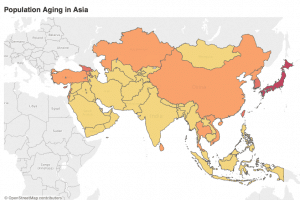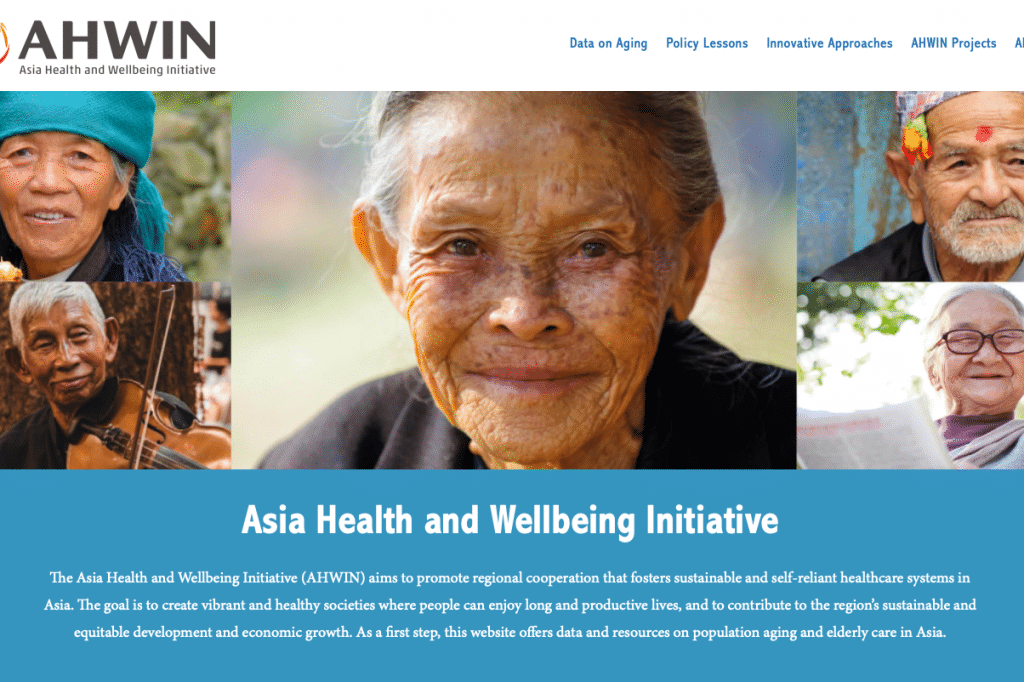JCIE has worked in partnership with the Economic Research Institute for ASEAN and East Asia (ERIA) to launch a new website to disseminate key data and resources on aging in Asia and share best practices to respond to this demographic shift.
Asia is facing a massive demographic shift. By 2050, the number of people in Asia who are aged 65 or older is expected to grow to 937 million people—more than double today’s number.
Recognizing the inevitable impact this will have on the region, the Japanese government launched the Asia Health and Wellbeing Initiative (AHWIN) in 2016. The initiative aims to promote bilateral and regional cooperation to foster sustainable and self-reliant health care systems in the Asian region. The goal of the initiative is to create vibrant and healthy societies where people can enjoy long and productive lives, and to contribute to the region’s sustainable and equitable development as well as economic growth. The initial focus of this initiative is on sharing information and resources and promoting collaborative research and dialogues on aging.
Under the auspices of the Cabinet Secretariat of Japan, JCIE has worked with ERIA to launch the AHWIN website, which will serve as a platform for sharing:
- interactive and downloadable data on aging in Asia
- policy lessons learned in Japan and other countries where aging is already advanced
- examples of innovative products, services, and programs to deal with aging-related issues
- information on AHWIN-supported research and dialogues
Currently, the policy lessons and innovative approaches highlighted on the site focus on Japan, but in the future, those sections will provide information and resources from throughout Asia.




